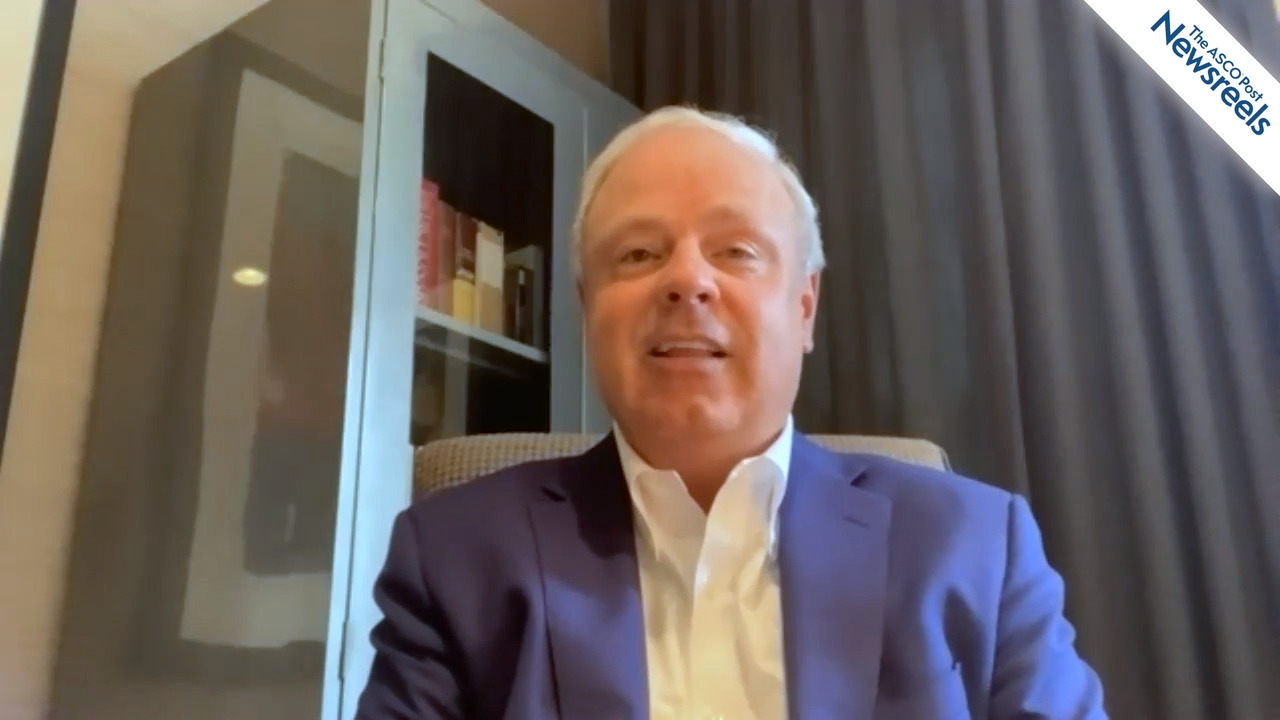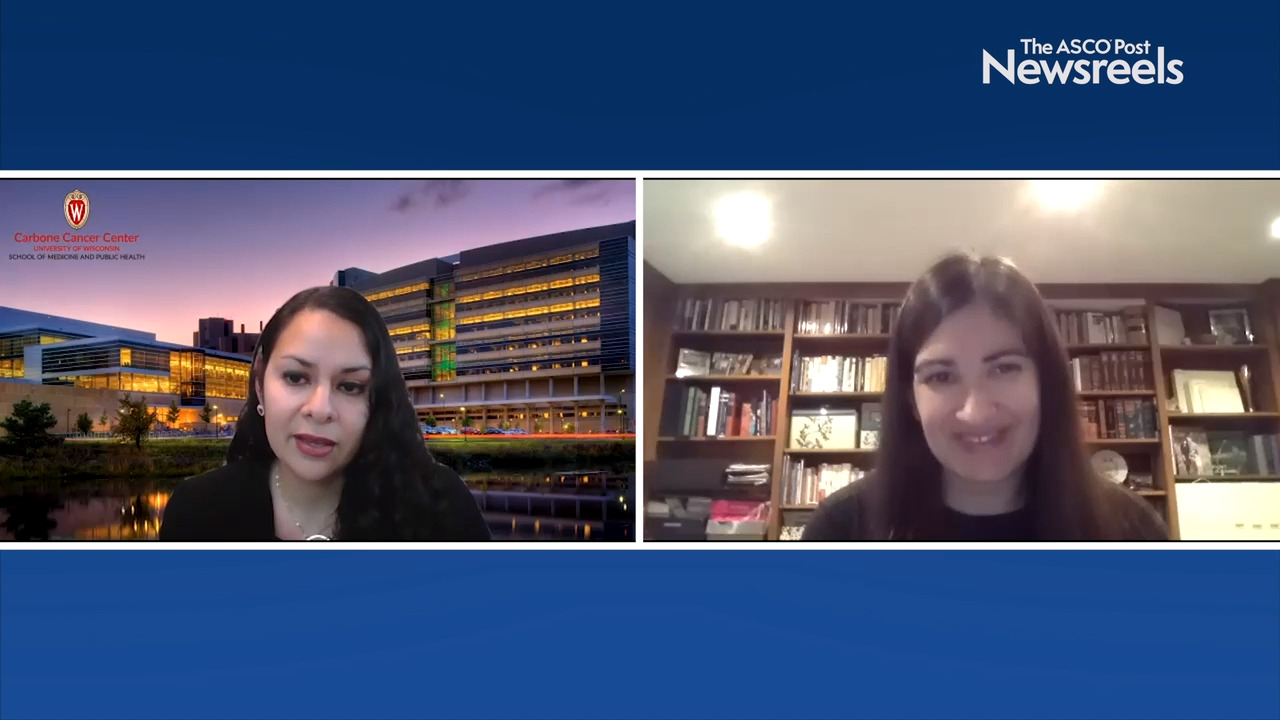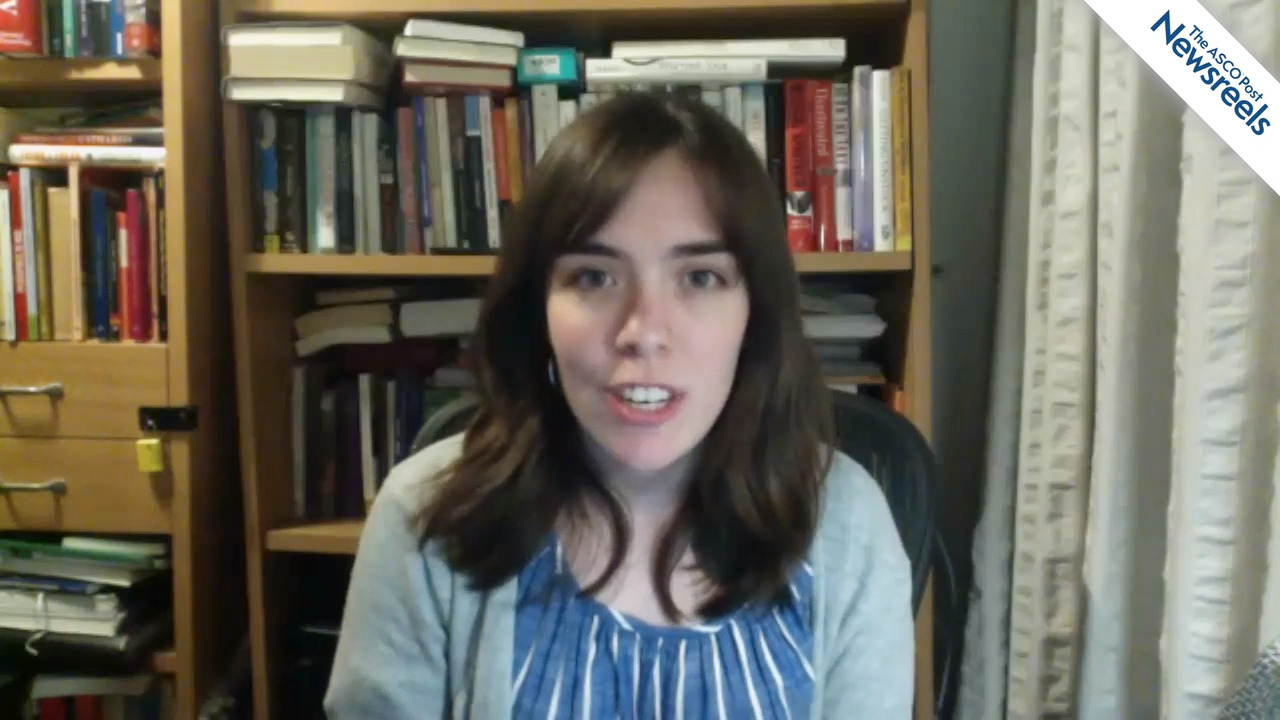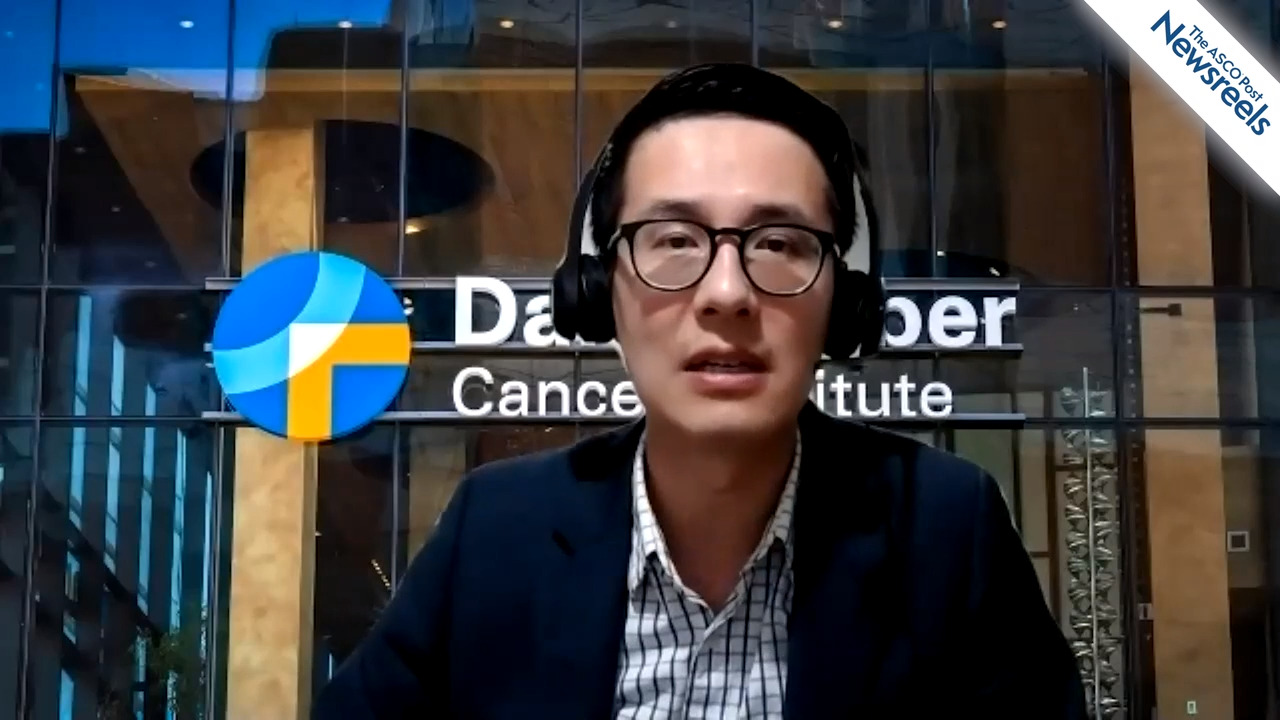David C. Fajgenbaum, MD, MBA, on Chasing His Cure: A Physician Is Battling His Disease and Beating the Odds
ASCO20 Virtual Scientific Program
David C. Fajgenbaum, MD, MBA, of the University of Pennsylvania, who trained as an oncologist, summarizes his opening lecture, a dramatic story of his battle against Castleman, a disease of the lymph nodes, his multiple near-death experiences, and the path that led him to develop a cooperative research effort making a difference for him and other patients with this idiopathic orphan illness.
The ASCO Post Staff
Scott Kopetz, MD, PhD, of The University of Texas MD Anderson Cancer Center, discusses phase III results of the BEACON CRC study, which confirmed that, compared with standard chemotherapy, encorafenib plus cetuximab with or without binimetinib improved overall survival and objective response rate in previously treated patients with BRAF V600E–mutated metastatic colorectal cancer (Abstract 4001).
The ASCO Post Staff
Howard A. Burris III, MD, FACP, FASCO, Immediate Past President of ASCO and current Society Board Chair, talks about how the meeting went, with its record-breaking attendance and new format.
The ASCO Post Staff
Reshma Jagsi, MD, DPhil, of the University of Michigan, and Narjust Duma, MD, of the University of Wisconsin Carbone Cancer Center, discuss the state of diversity in the hematology-oncology workforce, mechanisms that lead to inequities, promising interventions, and where the field should go next (Abstract 11000).
The ASCO Post Staff
Professor Lourdes Gil Deza, of the Instituto Oncológico Henry Moore, Buenos Aires, discusses her findings on the shortcomings of medical training when it comes to treating transgender patients, and the need to deepen clinical and communication skills to assist this population (Abstract 11002).
The ASCO Post Staff
Eric Zhou, PhD, of Dana-Farber Cancer Institute, discusses an existing online program called SHUTi (Sleep Healthy Using the Internet), that he and his team adapted to the needs of adolescent and young adult cancer survivors. After six online cognitive behavior therapy sessions delivered over 8 weeks, the 22 patients in the study reported a significant reduction in insomnia severity, daytime sleepiness, and fatigue as well as an overall improvement in quality of life.





